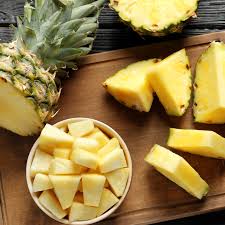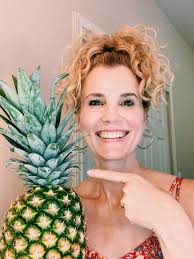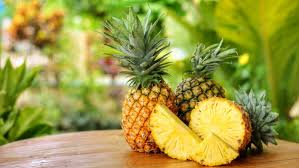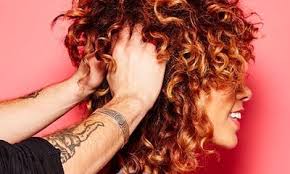
Pineapple Hair Care: 7 Ways to Protect Your Hair
Looking for natural ingredients to give you healthy, strong hair? Try this homemade pineapple hair mask. Try pineapple to keep your hair smooth and healthy.
Did you know that pineapple, everyone’s favorite fruit, can make your hair healthy? The sweet, tangy fruit contains nutrients that will help your hair. From promoting hair growth to improving scalp health, pineapple is a great and effective solution for improving hair health. It is rich in enzymes including bromelain, which has been shown to digest proteins, exfoliate the scalp, and promote hair growth. Pineapple also contains vitamins and minerals like vitamin C, manganese, and copper, which are essential for healthy hair and will help prevent hair loss. Try some simple pineapple DIY tips to keep your hair beautiful and healthy.

What is pineapple?
A study published in Food Research International revealed that pineapples, a South American fruit, are rich in vitamins, minerals and antioxidants. They contain an enzyme called bromelain, which breaks down proteins and aids digestion. Pineapples are also a good source of vitamin C, manganese and other important nutrients. The fruit contains juice and tough, waxy leaves, making it a versatile ingredient for cooking, medicine and cosmetics.
Pineapple benefits for hair
Pineapple has many benefits for healthy hair. Here’s how:
1. Promote hair growth
A study published in the International Journal of Nutrition and Food Science found that pineapple contains bromelain, an enzyme that helps digest proteins and increases blood flow to the scalp. The increased blood flow promotes hair growth by providing essential nutrients to the hair follicles. Bromelain can also improve scalp health by reducing dandruff and itching, which are essential for hair growth.
2. Reduce dandruff
A study published in the Asia Pacific Journal of Tropical Biomedicine found that pineapple contains natural antibiotics that can help control the growth of yeast that causes dandruff. By targeting this fungus, pineapple can reduce dandruff symptoms such as flakiness and itching.
3. Improves scalp health
A study published in Food Research International found that pineapple is rich in anti-inflammatory properties that can help soothe the scalp by reducing redness and irritation. Healthy skin is essential for promoting healthy hair.
4. Make your hair shine
According to research published in the International Journal of Nutrition and Food Sciences, pineapple is rich in vitamin C and antioxidants that help enhance the natural shine and luster of your hair. These nutrients protect hair from damage caused by environmental stress and provide a healthy, shiny appearance.
5. Repairs damage
Manganese and other essential minerals found in pineapples can help repair and rebuild damaged hair. This is especially beneficial for those with dry, brittle or damaged hair. However, more research is needed to prove this claim
6. Detangles your hair
Pineapple contains natural beauty products that help moisturize hair, making it easier to comb and style. This reduces breakage and frizz, making hair smoother and easier to manage. However, more research is needed to support this claim.
7. Protect color-treated hair
Pineapple antioxidants protect hair from environmental stressors such as UV radiation and pollution, thus preserving hair color and preventing fading. This is especially important for people with dyed hair.

Pineapple Hair Treatment: How to use?
Here are some simple and effective pineapple DIY hair tips from experts.
1. Pineapple Coconut Oil Mask
Ingredients:
Pineapple juice – 1/2 cup
Coconut oil – 3 tablespoons
Directions:
To create a mask that nourishes your hair, add 1/2 cup of the juice and 3 tablespoons of coconut oil in a bowl.
Gently apply the mask to your hair.
Leave on for 15-20 minutes.
Wash off with warm water.
2. Pineapple Honey Deep Conditioning Treatment
Ingredients:
Pineapple juice – 1/2 cup
honey – 1 tablespoon
olive oil – 1 tablespoon
Directions:
For a moisturizing treatment, combine 1/2 cup apple juice, 1 tablespoon honey, and 1 tablespoon olive oil in a bowl.
Apply a mask to your hair.
Leave the mask on for 10-15 minutes.
Rinse with warm water.
3. Pineapple and Avocado Hair Mask
Ingredients:
Pineapple juice – 1/2 cup
Avocado – puree
Honey – 1 tablespoon
Directions:
Combine 1/2 cup apple juice, 1/2 avocado puree, and 1 tablespoon honey in a blender to make a moisturizing mask.
Apply the mask to your hair.
Leave it on for 10-15 minutes.
Wash it off with lukewarm water.
4. Pineapple Juice hair rinse
Use pineapple juice as a final rinse after shampooing to add shine and softness.
5. Pineapple Cinnamon Scalp Scrub
Ingredients:
Pineapple juice – 1/2 cup
Cinnamon – 1 tablespoon
Coconut oil – 1 tablespoon
Directions:
Combine 1/2 cup apple juice, 1 tablespoon cinnamon, and 1 tablespoon coconut oil to stimulate the scalp.
Gently apply the toothpaste to your scalp
Use your fingertips to massage your scalp.
Leave on for 5 minutes.
Rinse with warm water.
6. Pineapple Banana Hair Mask
Ingredients:
Pineapple juice – 1/2 cup
Banana – puree
Honey – 1 tablespoon
Directions:
Put 1/2 cup juice, 1/2 banana and 1 tablespoon honey in a blender and use as a hair mask or deep conditioning treatment.
Apply the mask to the scalp and hair strands.
Leave it on for 10-15 minutes.
Wash it off with lukewarm water.
7. Pineapple Olive Oil Hair Serum
Ingredients:
Pineapple juice – 1/2 cup
Olive oil – 1 tablespoon
Directions:
Put ½ cup apple juice and 1 tablespoon olive oil in a bowl.
Apply the pineapple serum gently to your hair.
Are there any side effects of using pineapple in hair care?
Although pineapple is generally safe to use, side effects include:
- Allergy or sensitivity to bromelain or other ingredients.
- Over-moisturizing, making hair oily or heavy.
- Interaction with hair dyes or medications.
- Redness or rash due to acidity or enzyme activity.
- Who should not use pineapple mask?
People with the following problems should not use pineapple for hair:
- Allergies or sensitivities to pineapple or bromelain.
- Open wounds or sores on the scalp.
- Hair color application may affect color stability.
- Chemically treated hair may interfere with the treatment.
- Very oily hair produces more oil.
- Scalp conditions such as eczema or psoriasis can cause irritation or worsen symptoms.

